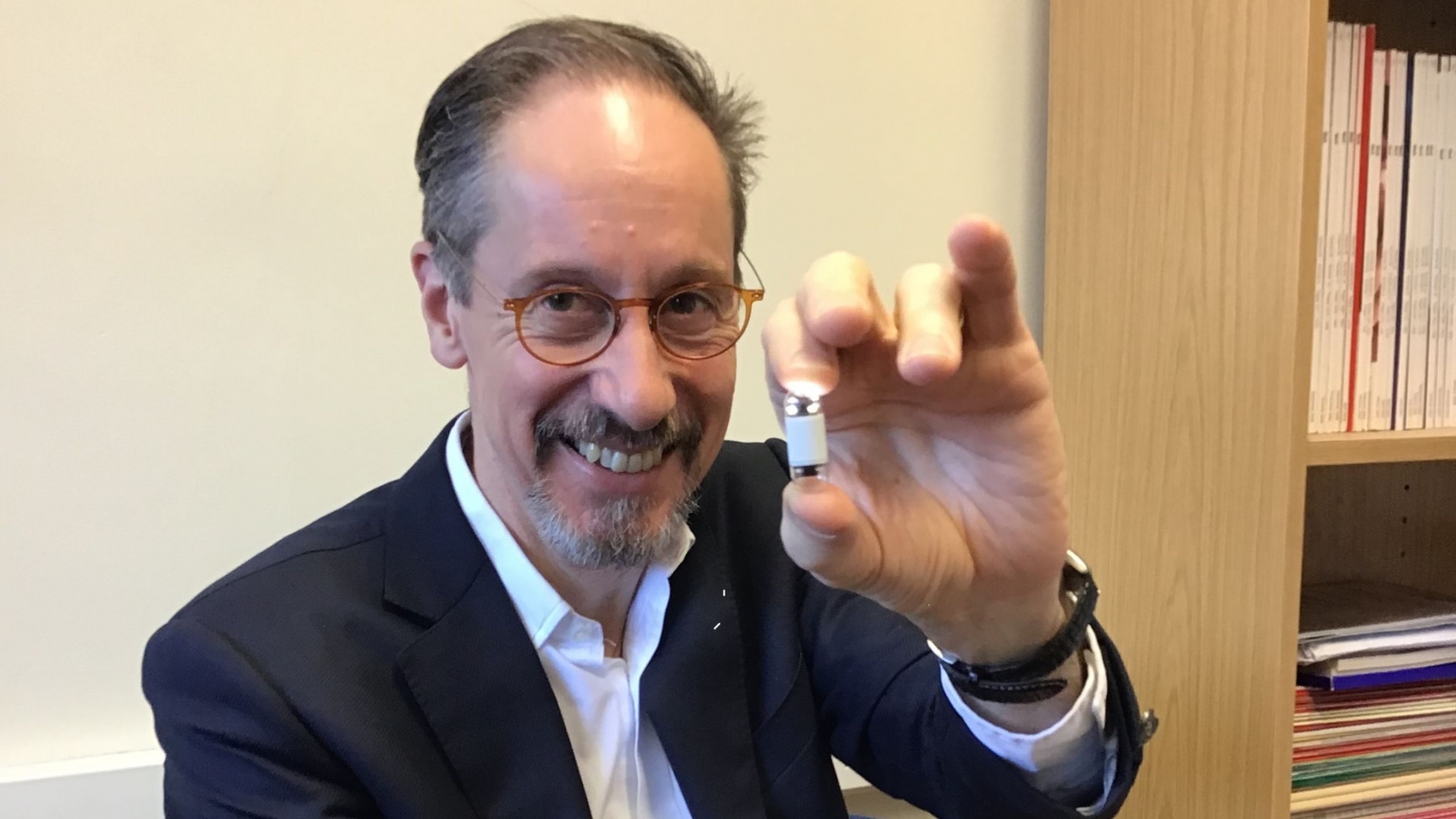In this section
Groundbreaking research could change the face of bowel cancer diagnosis

22 February 2024
York and Scarborough Teaching Hospitals NHS Foundation Trust has been awarded £3 million to lead national research into a device that could improve the clinical pathway for diagnosis of bowel cancer.
The research, which has been funded by the National Institute for Health and Care Research (NIHR), marks a huge milestone for the Trust and is the biggest project it has ever undertaken to fund a national clinical diagnostic study.
The research, called the ColoCap study, will evaluate a new bowel imaging technology for patients known as colon capsule endoscopy.
Colon capsule endoscopy is an easy-to-swallow ‘camera in a capsule’. Once swallowed it travels through the stomach and small intestine to the large bowel and takes multiple photographs of the inner lining of the bowel. The images are sent to a recorder that the patient wears which is then downloaded. This provides consultants with a minimally invasive, remotely accessible, and innovative tool to diagnose bowel cancer, colitis, and pre-malignant polyps. Eventually, the capsule passes naturally out of the body within the stool, having significantly less impact on the environment than a colonoscopy.
Currently, patients usually undergo a telescope test of the large bowel known as colonoscopy. A colonoscopy is an invasive test that can be uncomfortable or embarrassing for some patients and is performed in hospital. Colonoscopy is the ‘gold standard’ for diagnosing bowel cancer and, because it can take samples and remove polyps, it has advantages over colon capsule endoscopy. However, demand for colonoscopy is high, resulting in long waiting times and it takes long time for a health worker to train in colonoscopy.
If the ColoCap study is successful, the colon capsule endoscopy could rapidly increase the capacity for diagnosing bowel cancer and other bowel diseases and so reduce waiting times. It is also hoped that the technology will increase patient satisfaction since it rarely causes pain and for some end the requirement to travel long distances for a colonoscopy. Instead, patients could swallow the capsule in a GP surgery or the comfort of their own homes, which allows more flexibility for patient needs.
Professor James Turvill, Consultant Gastroenterologist, York and Scarborough Teaching Hospitals NHS Foundation Trust, explained: “It has taken 15 years of hard work to get to this stage and it is a real privilege to think that I am working on a project that may change the way bowel cancer is diagnosed in future, both in the UK and internationally. Working on the ColoCap project is the pinnacle of my career and comes as we complete the largest evaluation ever undertaken into the use of colon capsule endoscopy in bowel cancer diagnosis.”
Professor Turvill said that although the device is not a new product it was not being used effectively across the NHS before the Covid pandemic.
“Overnight, when Covid struck, it became very difficult to perform colonoscopy and so the NHS had to find an alternative” he explained. “Colon capsule endoscopy was introduced as a pilot by the NHS and York and Scarborough Teaching Hospitals NHS Foundation Trust were asked to evaluate it. This has now allowed us to develop the ColoCap study.”
“Colon capsule endoscopy does not suit everyone, it is not successful for everyone, and we have yet to work out which patents it suits best. But some find it a much better experience than a colonoscopy and what is exciting is that it can be swallowed remotely, supported by a virtual consultation. What is best is that it all happened because of what we have achieved working collaboratively as a fantastic Research and Development department in York and Scarborough Teaching Hospitals NHS Foundation Trust.”
The Trust is working in partnership with leading academics in Scotland and Wales as part of the study, which is the largest evaluation of its kind nationally and will involve about 30 sites across the UK. Staff from York will be working with the University of Aberdeen, Centre for Healthcare Randomised Trials (CHaRT) and Cardiff University Centre for Trials Research, colleagues at The University of York and the York Health Economics Consortium.
Work around recruiting patients onto the trial will start in the new financial year. The results will be made public in 2026-2027.
Speaking on the news, Dr. Alistair Hall, Clinical Director, National Institute for Health and Care Research, said: “We offer our congratulations to all involved in bringing this project concept, design, and set-up to fruition - a big achievement in itself. The national and regional Clinical Research Network looks forward to supporting the next phase with the partnership and participation of members of the public. It is easy to see the importance and potential impact of this technology when used optimally - as we expect this research to make clear."
Simon Morritt, Chief Executive, York and Scarborough Teaching Hospitals NHS Foundation Trust, added: “The colon capsule endoscopy has a great deal of potential and we are excited and privileged to be leading its national evaluation. If successful, the potential benefit to patients cannot be underestimated.”






